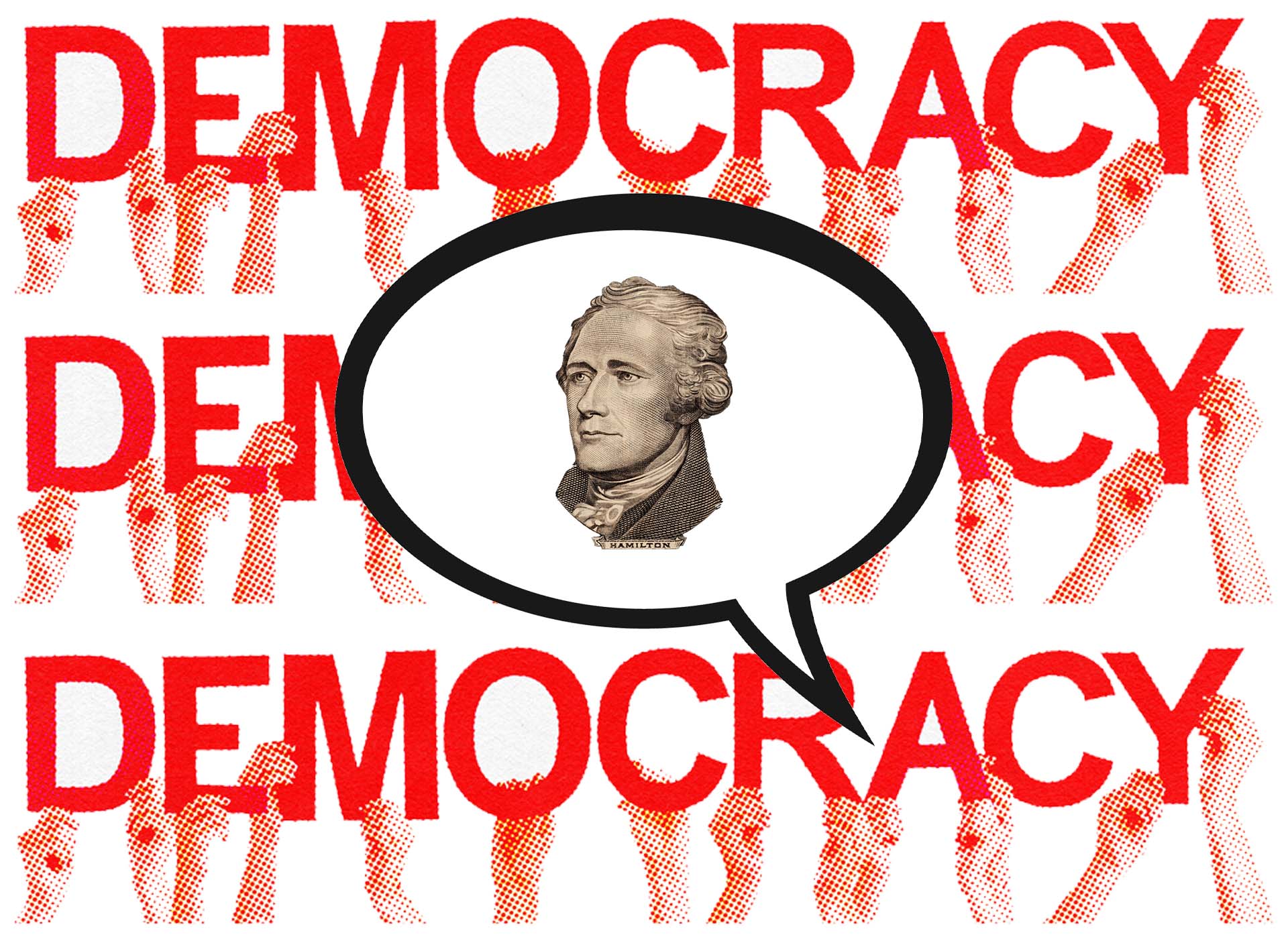
What We Talk About When We Talk About Democracy
Attacks on Democracy look more and more like actual Democracy
We hear a lot about emergencies these days. From the "climate emergency" to the "covid emergency", it would seem we are constantly beset by emergencies that warrant special responses from ourselves and our governments. More often than not, these emergencies mean that citizens, in some way, have rights stripped from them in an attempt to ward off or prevent the certain calamity on the horizon.
We've become all too familiar with the demands made of us in response to Covid and have become increasingly intimate with the demands made under the guise of averting a climate emergency. The enforcement of measures to ward off the specter of these emergencies is often not dictated and carried out by the state but enforced through fear and implication. Sure, you can go out to a bar without being vaccinated, but you're a selfish prick if you do and everyone will lose freedom if you do it. Additionally, you can eat that steak, but consider how selfish it is of you to contribute to the industry most responsible for methane gas production.
When the state does react to these emergencies, it is often in ways that supersede Democratic principles. Just yesterday, the Supreme Court rejected religious challenges to NYC's vaccine mandate for health workers. As Neil Gorsuch — one of three votes against the rejection — argues in his response to yesterday's ruling, "We do all this even though the State's executive decree clearly interferes with the free exercise of religion — and does so seemingly based on nothing more than fear and anger at those who harbor unpopular religious beliefs." In this instance, a right enshrined by the US Constitution and an integral component of the success of the United States in pioneering universal rights plays second-fiddle to the demands of the present "health emergency".
This is life now. We all know it. Love it or hate, the demands of these emergencies increasingly drive politics.
If you thought this was the last emergency we'd encounter this year, you were wrong. The New York Times declared a new "democratic emergency" run by a new anti-democratic movement. Taking the steady drumbeat of 2020 election fraud claims that have since been channeled into a revival of GOP participation in politics, the NYT claims that reform efforts in swing states like Arizona, Georgia, Pennsylvania, Michigan, and Wisconsin threaten the foundations of Democracy. Sounds pretty serious, right?
The measures mostly involve a spate of Republican candidates running against their Democratic counterparts. In Arizona, categorized as one of the most egregious moves towards "anti-democracy", measures involve transferring power over election lawsuits from the Secretary of State, who is a Democrat, to the Attorney General, who is a Republican. A number of other minute reforms that don't seem that different from previous years pepper the Times' assessment of this latest "threat" to Democracy that actually sounds a lot like actual Democracy and not governance under a constant state of emergency that many politicians want to perpetuate ad infinitum in order to bypass the consensus demands of a Democracy.
What the Times seems most worried about is that a coalition is emerging over which they have no sway. In effect, regardless of whether you buy into election fraud claims, the result has been a giant groundswell of political engagement among political circles across the spectrum, and more often than not, outside the circle of influence outlets like the Times think they own.
In our neck of the woods, James Garrett, the Davidson County GOP Chairman, indicates that increased engagement has not come from outreach, but genuinely interested volunteers who want to get involved. Garrett indicates the enthusiasm is higher than it's ever been from volunteers. Would the Times categorize this development as anti-democratic or merely concerning because it is something over which they have no sway?
Implicitly, the concern is that the Big Bad Republicans and their puppet Master, Big Bad Orange Man Drumpf, are going to fraudulently run elections. This is an accusation pioneered by Stacey Abrams who discovered that it was a useful way to keep herself in the public eye and garner notoriety for "protecting election integrity" without actually doing anything.
At The Pamphleteer, we're willing to admit that election fraud is about as American as apple pie. Since the end of the Civil War and the emergence of the two-party system, American elections have been rife with fraud to varying degrees since the Founding. It's a natural process for a Democracy to encounter then snuff out electoral fraud and what we witness currently is no different. It is far from a "democratic emergency" which implies some supra-democratic response to protect democracy — the height of irony.
For the Times to direct this accusation at their partisan counterparts is transparently political and says nothing more about the truth of the matter than if Tom Brady were to throw the ball to himself on every play.
